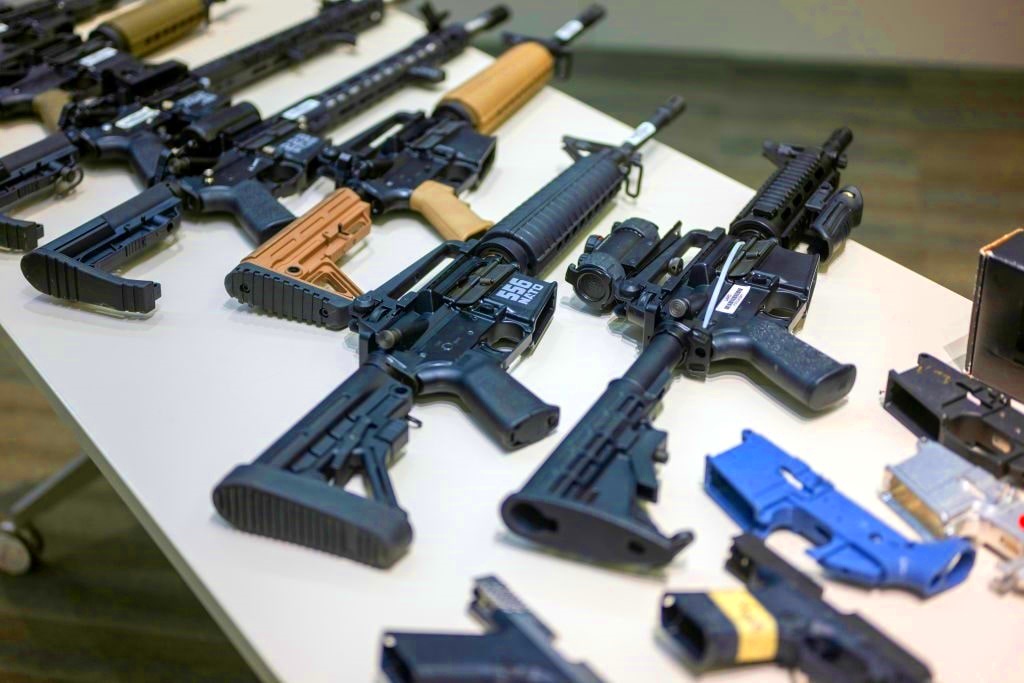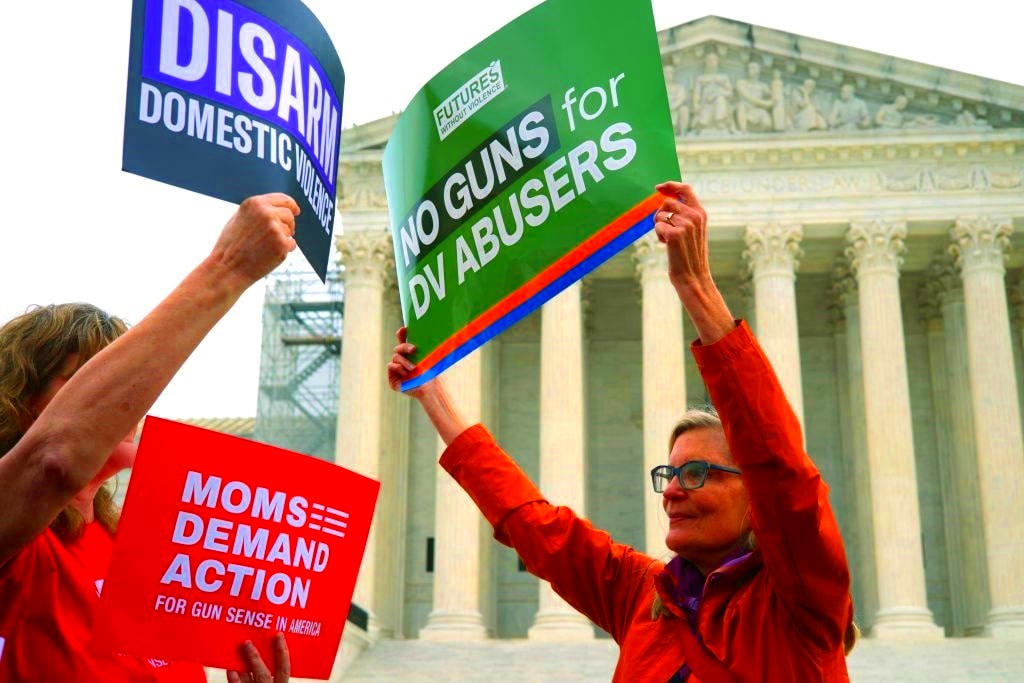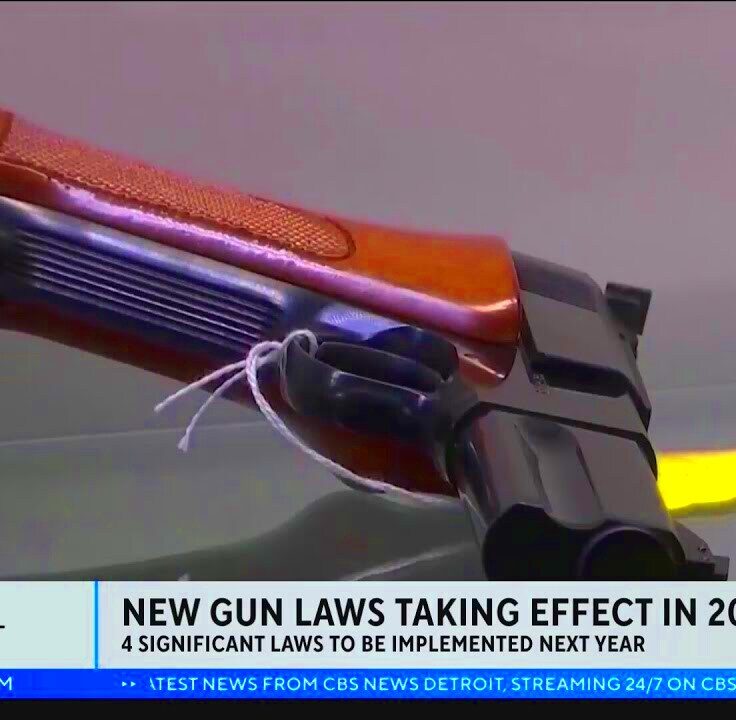Key Changes in Gun Enhancement Law for 2024
The Gun Enhancement Law adds additional penalties to crimes committed using firearms. It is designed to increase the severity of sentences when a weapon is involved in criminal activities. This law acts as a deterrent, ensuring that offenders who use guns face stricter legal consequences. For years, these enhancements have shaped how courts address gun-related crimes. In 2024, significant changes are being introduced, which aim to modify the existing framework of these enhancements, bringing new implications for both offenders and the legal system.
Understanding Gun Enhancement Law Before 2024

Before 2024, the Gun Enhancement Law was relatively straightforward. It imposed additional years in prison if a firearm was used during the commission of a crime. These enhancements varied based on the type of crime and the manner in which the firearm was used. For instance:
- Crimes like robbery or assault typically saw enhancements of several years added to the base sentence if a gun was involved.
- If a firearm was discharged during the crime, the enhancement could be even more severe.
- In some jurisdictions, enhancements applied even if the firearm wasn’t fired, as long as it was present or used to intimidate.
However, critics argued that the law was sometimes too rigid, leading to excessively long sentences in cases where the firearm’s use was minimal or the crime was non-violent. This raised concerns about fairness, and many called for reform. As a result, legal experts and policymakers began to debate how these laws could be restructured to ensure they were more balanced, leading to the upcoming changes in 2024.
What Triggered the Changes in 2024

Several factors prompted the changes in the Gun Enhancement Law for 2024. Public outcry over the inflexibility of the law played a significant role. Many argued that the blanket approach to gun enhancements didn’t take into account the circumstances of each case, leading to disproportionately harsh penalties for some offenders. Additionally, various legal studies highlighted that these enhancements often failed to reduce gun violence or deter crime as effectively as intended. Key drivers of the 2024 changes include:
- Calls for Reform: Advocacy groups and legal experts pushed for a more nuanced approach that considered the intent behind firearm use in crimes.
- Criminal Justice Reform Movements: The broader movement toward reducing mass incarceration and reforming sentencing practices brought the Gun Enhancement Law under scrutiny.
- Data on Recidivism: Research showed that enhanced sentences were not always effective in preventing repeat offenses, leading policymakers to rethink their approach.
- Judicial Discretion: Judges and attorneys sought more flexibility in sentencing, believing that not all cases involving firearms warranted the same level of punishment.
These factors, combined with a changing political landscape, set the stage for the modifications to the Gun Enhancement Law that will take effect in 2024.
Key Changes in Gun Enhancement Law for 2024
The 2024 changes to the Gun Enhancement Law are designed to bring more flexibility and fairness to the sentencing process. One of the most notable changes is the introduction of a tiered system, which considers the circumstances surrounding the use of firearms in crimes. This shift allows for more discretion in how enhancements are applied, based on factors like intent and the level of violence involved. These adjustments aim to ensure that penalties are proportionate to the crime, avoiding overly harsh sentences for less severe offenses.
Here are the key changes:
- Tiered Penalty System: Gun enhancements will now be based on the severity of the crime, with higher penalties for violent offenses and lower enhancements for non-violent ones.
- Judicial Discretion: Judges will have more authority to adjust sentences, considering the specifics of each case, such as whether the firearm was discharged or merely present.
- Reduction of Mandatory Minimums: The 2024 law reduces the mandatory minimum sentences for certain crimes involving guns, particularly for first-time offenders or cases with mitigating circumstances.
- Focus on Rehabilitation: For non-violent offenders, the new law places greater emphasis on rehabilitation programs rather than long-term incarceration.
These changes reflect a broader shift in the legal system towards more individualized sentencing, balancing public safety with fairness in the justice process.
Impact of the New Law on Sentencing
The changes in the Gun Enhancement Law for 2024 will have a significant impact on sentencing, particularly for those charged with non-violent gun-related offenses. The new tiered system allows courts to take a more measured approach, reducing the number of excessively long sentences for crimes involving firearms. This will be especially beneficial for defendants who did not use the gun in a violent manner or who were first-time offenders.
Here’s how the new law impacts sentencing:
- More Flexibility in Sentencing: Judges now have the ability to impose sentences that better reflect the details of the crime, rather than being bound by rigid mandatory enhancements.
- Shorter Sentences for Minor Offenses: Non-violent crimes that previously carried harsh enhancements will now see reduced penalties, allowing offenders to serve shorter prison terms.
- Increased Focus on Alternatives: For minor, non-violent offenders, the new law encourages alternatives to incarceration, such as probation or community service, particularly for those without prior convictions.
This approach not only benefits the offenders but also reduces the burden on the prison system, focusing on rehabilitation rather than purely punitive measures. However, violent offenders or those using firearms to cause serious harm will still face significant penalties, maintaining public safety as a priority.
Legal Implications for Offenders and Defendants
For offenders and defendants, the 2024 changes bring both opportunities and challenges. While the new law provides more leniency in cases where a gun was present but not used violently, it also introduces stricter guidelines for cases involving clear violence or harm. This shift requires both prosecutors and defense attorneys to adjust their strategies when dealing with gun-related cases.
Here are some of the legal implications:
- More Opportunities for Plea Bargains: Defendants may find it easier to negotiate plea deals in light of the more flexible enhancement rules, particularly in non-violent cases.
- Increased Defense Focus on Circumstances: Defense attorneys will likely focus more on the context of the firearm’s use in the crime, emphasizing whether or not violence was involved to argue for reduced sentences.
- Harsher Penalties for Violent Crimes: While the law is more lenient for non-violent offenders, it imposes stricter penalties for those who use firearms in violent ways, particularly if someone is harmed or killed.
Overall, defendants facing gun enhancement charges will need to carefully consider their legal strategies under the new framework, as the stakes remain high for serious crimes, but there are new avenues for lighter sentencing in less severe cases.
How the Changes Affect Gun Owners and Rights
The 2024 changes to the Gun Enhancement Law impact not just offenders but also responsible gun owners. While the law mainly targets those using firearms in crimes, it also raises questions about gun ownership and rights. Gun owners should be aware of the modifications, as these laws can influence how firearms are viewed under the legal system, especially in situations involving self-defense or accidental firearm discharge.
Here’s how the changes might affect gun owners:
- Increased Scrutiny in Self-Defense Cases: While self-defense laws remain intact, the new gun enhancement rules may apply if excessive force is used, especially in cases where the threat is not deemed imminent.
- Accidental Discharge Penalties: The new law may impose enhanced penalties for accidental discharges of firearms, particularly if someone is injured or property is damaged. This highlights the importance of responsible gun ownership and safety training.
- Legal Challenges to Second Amendment Rights: Some gun rights advocates fear that the new enhancements could lead to further restrictions on gun ownership, although the law itself doesn’t directly change existing rights.
Overall, gun owners will need to be more vigilant about how they use and store firearms. With the law focusing on reducing gun violence, any misuse or negligence could carry more severe consequences under the new system. Staying informed about these legal changes is crucial for protecting gun rights while remaining compliant with the law.
Conclusion on Gun Enhancement Law Changes
The 2024 changes to the Gun Enhancement Law mark a significant shift in how the legal system handles crimes involving firearms. By introducing a more nuanced, tiered approach, the law aims to balance the need for public safety with the recognition that not all gun-related offenses are equal. This new framework offers greater fairness in sentencing, particularly for non-violent offenders, while still maintaining tough penalties for violent crimes.
For offenders, gun owners, and legal professionals, understanding these changes is crucial. The law now provides more flexibility, especially for first-time and non-violent offenders, while also upholding strong consequences for those who misuse firearms in harmful ways. As these changes take effect, both the legal community and the public will need to adapt to the new standards, ensuring that justice is served without unnecessary harshness.
Frequently Asked Questions
1. Will the 2024 changes affect all gun-related crimes?
The changes primarily focus on how enhancements are applied in cases involving firearms. They create more flexibility in sentencing for non-violent offenses, but violent crimes involving guns will still face significant penalties.
2. How does the new tiered system work?
The tiered system considers the severity of the crime and the level of gun use. For example, a non-violent offense where a gun was present but not used aggressively may receive a lighter enhancement, while violent crimes involving gunfire will still carry strict penalties.
3. Do the changes impact my Second Amendment rights?
No, the 2024 changes do not directly alter your right to own a firearm. However, the law may impose stricter penalties for improper gun use, so it’s important to stay informed and practice responsible ownership.
4. Are judges required to follow the tiered system?
Judges now have more discretion under the new law, meaning they can adjust sentences based on the specific details of each case. However, they are encouraged to follow the guidelines set by the tiered system to ensure fairness.


